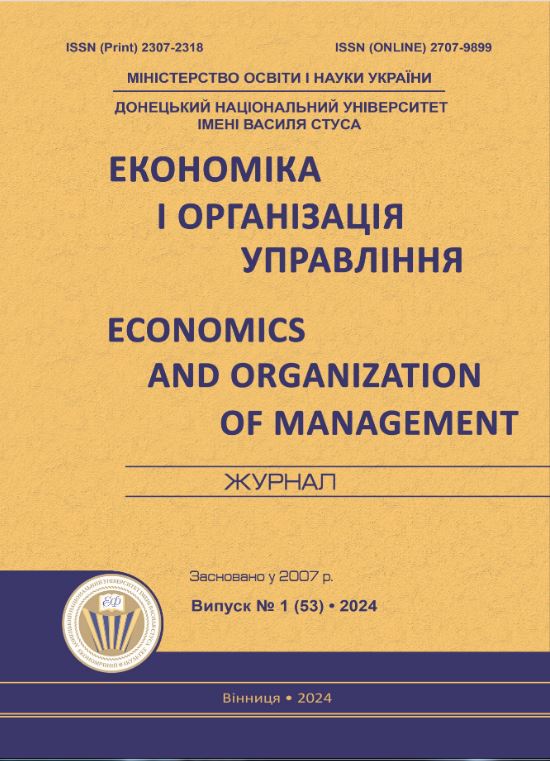Gender aspects of economic thought: analyzing the role of women in the development of economic theories
DOI:
https://doi.org/10.31558/2307-2318.2024.1.11Keywords:
gender; economics; economic thought; women; theories; contributionsAbstract
The role of women in shaping economic theories has often been overlooked in traditional narratives of economic thought. This article aims to address this gap by analyzing the contribution and influence of women on economic theories throughout history. Through examining key figures, their works, and their impact on economic discourse, this research aims to highlight the significant role that women have played in shaping economic thought.
The article examines the influence of prominent women economists, such as Mary Paley Marshall, Joan Robinson, Elinor Ostrom, Claudia Goldin, and others, on the formation and development of key concepts in economic science. Particular attention is paid to their contribution to the development of theories about monopoly, competition, economic inequality and social justice. The analysis of the influence of women's experience on the evolution of economic thought has been conducted, emphasizing the importance of their contribution to understanding gender aspects in various economic spheres. By exploring the life and academic contributions of women economists, the article elucidates the diversity of approaches and ideas they have brought to the field of economic science.
Through an analysis of womenʼs contributions to economic science, the article promotes a deeper understanding of the importance of gender equality in economics and societal development. The conclusions drawn in the article may stimulate further research into the role of women in shaping economic theories and contribute to ensuring greater representation of women in this field of study.
References
Harriet Martineau: Theoretical and Methodological Perspectives – New York & London: Routledge, 2003. – 301 p.
Reeves R. The Women Who Made Modern Economics / Rachel Reeves., 2023. – 288 p.
A Biographical Dictionary of Women Economists. Edited by Robert W. Dimand, Mary Ann Dimand & Evelyn L. Forget, – Massachusetts: Edward Elgar Publishing, 2004. – 520 p.
Luxemburg R. Las tendendencias de la economia capitalista [Electronic resource] / Luxemburg // Revista de economia critica. – 2019. – Mode of access: http://revistaeconomiacritica.org.
Harcourt G. Joan Robinson / G. Harcourt, P. Kerr., 2009. – 270 p.
Lemke J. Elinor Ostrom and the Bloomington School: Building a New Approach to Policy and the Social Sciences / J. Lemke, V. Tarko., 2021. – 208 p.
Reinhart C. This Time Is Different: Eight Centuries of Financial Folly / C. Reinhart, K. Rogoff., 2009. – 463 p.
Reinhart C. Growth in a Time of Debt / C. Reinhart, K. Rogoff. // American Economic Review:. – 2010. – P. 573–578.
Goldin C. A Grand Gender Convergence: Its Last Chapter / Claudia Goldin. // American Economic Review. – 2014. – №104. – P. 1091–1119.
Goldin C., F. Katz L. The Career Cost of Family. Workplace Flexibility (Washington DC, 29-30 November 2010). Washington, 2010. P. 1-12.
Banerjee A. Poor Economics: A Radical Rethinking of the Way to Fight Global Poverty / A. Banerjee, E. Duflo., 2012. – 320 p.
Duflo E. Field Experiments in Development Economics [Electronic resource] / Esther Duflo. – 2006. – Mode of access: https://economics.mit.edu/sites/default/files/2022-08/Field%20Experiments%20in%20Development%20Economics.pdf.

